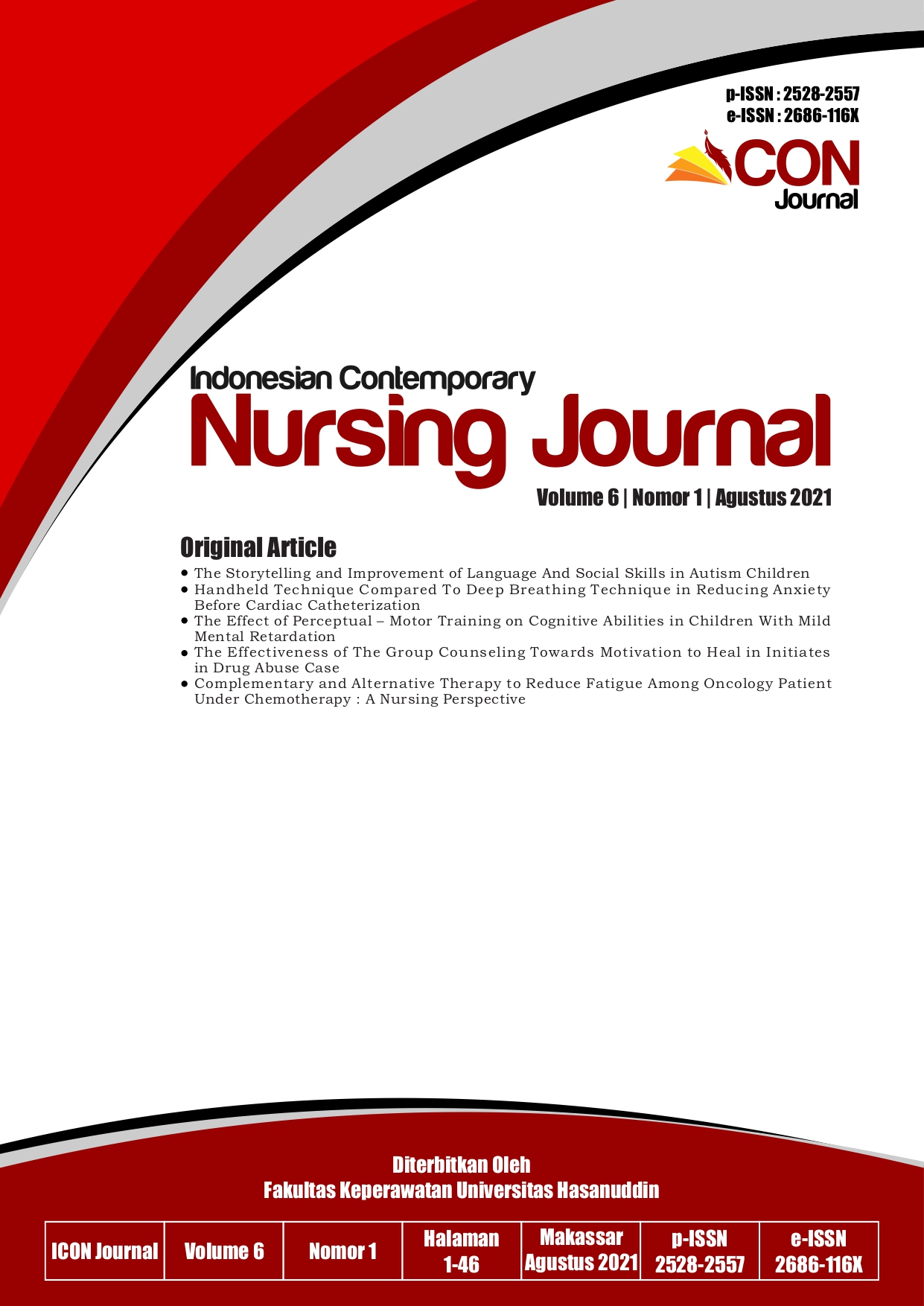The Effect of Perceptual – Motor Training on Cognitive Abilities in Children with Mild Mental Retardation
Keywords:
Perceptual – Motor Training, Cognitive Abilities, Mild Mental RetardationAbstract
Introduction: Children with mental retardation are the children who have incomplete mental development, there are an obsctacles during the child’s development that effect their cognitive, motoric, sensory, physical, language, and emotional development. This study aims to determine the effect of perceptual – motor training on changes in cognitive abilities in children with mild mental retardation. Method: This study used a quasi-experimental design with the type of one group pre test and post test. The instrument used montreal – cognitive assessment which consists of 7 cognitive aspects test. The subjects of this study were children with mild retardation from SLB Laniang Makassar who were able to communicate even though the children needed repetition instructions for several times and their aged 10-14 years old. The number of respondent was 17 peoples (out of dropout) and underwent perceptual-motor training for 4 weeks (12 times treatments). Results: The results of this study after Shapiro Wilk normality test obtained normal distribution data (p >0.05), then carried out hypothesis test used Paired T - Test and obtained a significant value p = 0,000 (p <0.05). The results of the data analysis from the pre test and post test showed an increase on cognitive abilities. Conclusion: This shows that there is an effect of perceptual – motor training on changes in cognitive abilities in children with mild mental retardation.Downloads
Download data is not yet available.
Dimensions
Published
2021-08-31
How to Cite
Purnamasari, N., Arifin, N. F., & Nawir, D. A. (2021). The Effect of Perceptual – Motor Training on Cognitive Abilities in Children with Mild Mental Retardation. Indonesian Contemporary Nursing Journal (ICON Journal), 6(1), 21-29. https://doi.org/10.20956/icon.v6i1.10052
Issue
Section
ARTICLES
Copyright & Licensing
Authors who publish with this journal agree to the following terms:
Authors retain copyright and grant the journal right of first publication with the work simultaneously licensed under a Creative Commons Attribution License that allows others to share the work with an acknowledgement of the work's authorship and initial publication in this journal.
Authors are able to enter into separate, additional contractual arrangements for the non-exclusive distribution of the journal's published version of the work (e.g., post it to an institutional repository or publish it in a book), with an acknowledgement of its initial publication in this journal.
Authors are permitted and encouraged to post their work online (e.g., in institutional repositories or on their website) prior to and during the submission process, as it can lead to productive exchanges, as well as earlier and greater citation of published work (See The Effect of Open Access).
Authors retain copyright and grant the journal right of first publication with the work simultaneously licensed under a Creative Commons Attribution License that allows others to share the work with an acknowledgement of the work's authorship and initial publication in this journal.
Authors are able to enter into separate, additional contractual arrangements for the non-exclusive distribution of the journal's published version of the work (e.g., post it to an institutional repository or publish it in a book), with an acknowledgement of its initial publication in this journal.
Authors are permitted and encouraged to post their work online (e.g., in institutional repositories or on their website) prior to and during the submission process, as it can lead to productive exchanges, as well as earlier and greater citation of published work (See The Effect of Open Access).

